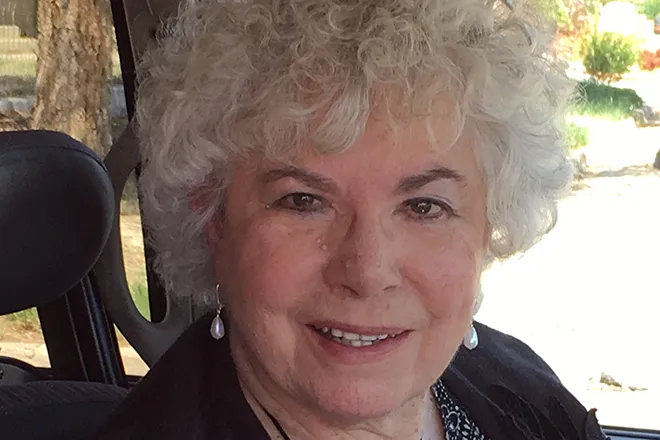
Mark Hillman’s Capitol Review: Supreme Court ruling puts legislature on shaky ground
© iStock - nick1803
During its August special session, the Colorado General Assembly passed several bills to raise tax revenue and partially fill the growing chasm between federal tax policy and progressive Democrats’ insatiable spending.
Although the Taxpayers Bill of Rights (TABOR) in our state constitution requires a public vote on any “tax policy change directly causing a net tax revenue gain,” lawmakers believe that a Colorado Supreme Court from 2018 allows them to raise tax revenue by closing so-called “loopholes.”
Specifically, the court ruled in TABOR Foundation vs. RTD (2018) that the language of TABOR is “best read to exclude legislation that causes only an incidental and de minimus tax revenue increase.” Justices arrived at this conclusion by analyzing a 2013 bill that removed some sales tax exemptions and added others to make RTD and state sales tax collections uniform.
Although legislative staff predicted a 0.6 percent increase in revenue, justices disagreed with TABOR Foundation’s argument that this triggered the constitutional requirement for a public vote.
However, the court added in a footnote, “We do not suggest that TABOR allows districts to raise revenue by increasing taxes without voter approval so long as they do it in small enough increments; while such measures might be de minimus, they would not be incidental.”
Translation: If a legislative purpose is to increase revenue, then it really doesn’t matter that the amount is relatively small.
Lawmakers conveniently ignored that footnote last month when they passed that bills to:
Require Colorado taxpayers to increase their state tax liability by adding back a 20 percent deduction allowed under federal law for business income received from partnerships, sole proprietorships and certain corporations. That bill is expected to increase tax revenue by $97 million in 2025-26.
In the bill’s “declaration,” sponsors professed that because they were simply extending tax policy which would have expired in 2025, this was not a “tax policy change” and will not cause a net revenue gain as defined by TABOR.
Reduce a tax deduction for insurance companies that keep at least 2 percent of their employees based in Colorado, resulting in an estimated $90 million increase in tax revenue.
Sponsors declared this bill’s primary purpose was to “better align” Colorado tax policy with other states, that any revenue gained was “incidental” and “de minimus,” and so voter approval is not required.
Barely 10 days later, the Supreme Court unanimously struck down two tax increases by the City of Lakewood. In doing so, justices raised issues that cast doubt on “hocus pocus” incantations relied upon by legislators.
“[A] taxing district (including the state) cannot exempt itself from TABOR’s restrictions and requirements simply by declaring that a legislative change has a purpose other than revenue generation,” wrote Justice Richard Gabriel.
This should be a cold shower for lawmakers who think they can alter reality with a legislative declaration. Passing a bill that declares, “up is down,” doesn’t make it so.
Further, the court found, “it was obvious when each (Lakewood) Ordinance was enacted that it would have the effect of raising revenue,” later adding, “although revenue generation may not have been the only purpose … revenue generation was not merely incidental.”
On this matter, Lakewood’s standing was more solid than the two bills passed in August. While Governor Jared Polis meticulously avoided mentioning “raising revenue” in his order to re-convene the legislature, he repeatedly said the converse, lamenting “revenue loss,” “significant revenue shortfall,” etc.
If lawmakers intend to fill a hole in the state budget, they will do so with revenue – not cotton candy.
Moreover, lawmakers publicly justified these bills as changes in tax policy, a broad description that falls outside the boundaries of Supreme Court permissiveness.
Joint Budget Committee member Representative Emily Sirota (D-Denver) said the business deduction is “not good tax policy. House Speaker Julie McCluskie (D-Dillon) described eliminating tax breaks and loopholes as consistent with broad changes her caucus has considered.
For years, the Supreme Court avoided drawing bright lines to illuminate boundaries that trigger a public vote on a tax increase, but it’s recent decision and the legislature’s bold defiance, raises certain questions:
- If extending a tax that was set to expire is not a tax increase under TABOR, can local governments and school districts also extend mill levies and sales taxes without asking voters as they have done heretofore?
- Can the legislature curtail existing tax deductions in a way that consistently raises revenue and credibly claim that raising revenue was merely “incidental”?
We won’t know until someone with legal standing challenges these new laws in court.
Mark Hillman served as Senate Majority Leader and State Treasurer. To read more or comment, go to www.MarkHillman.com.















